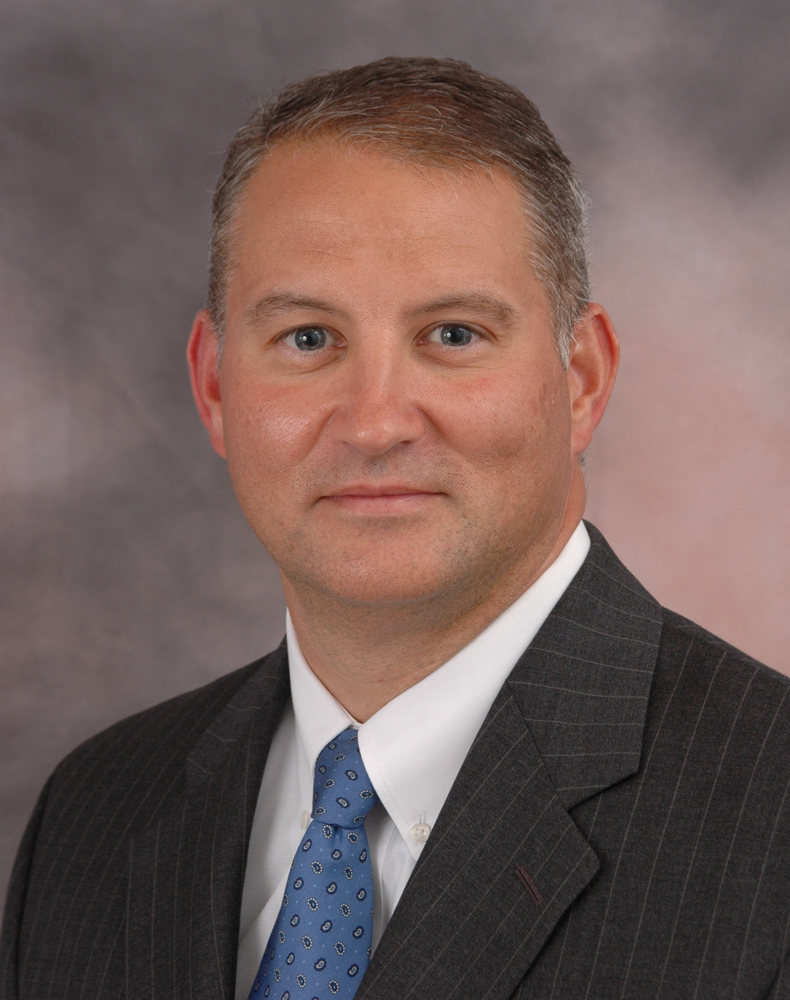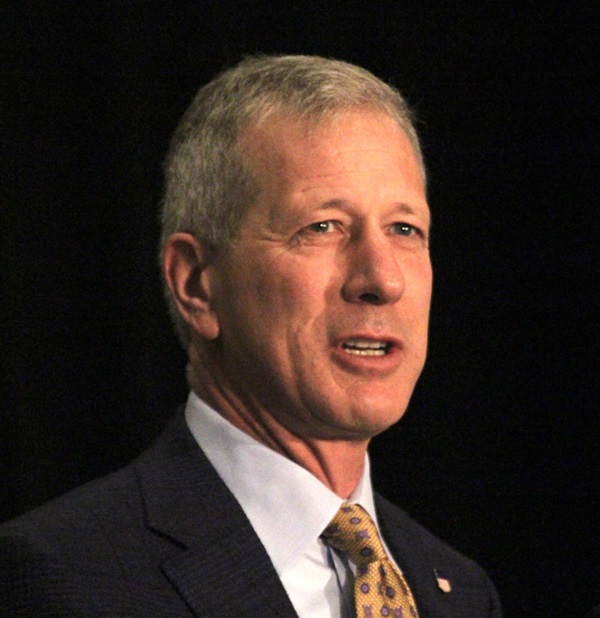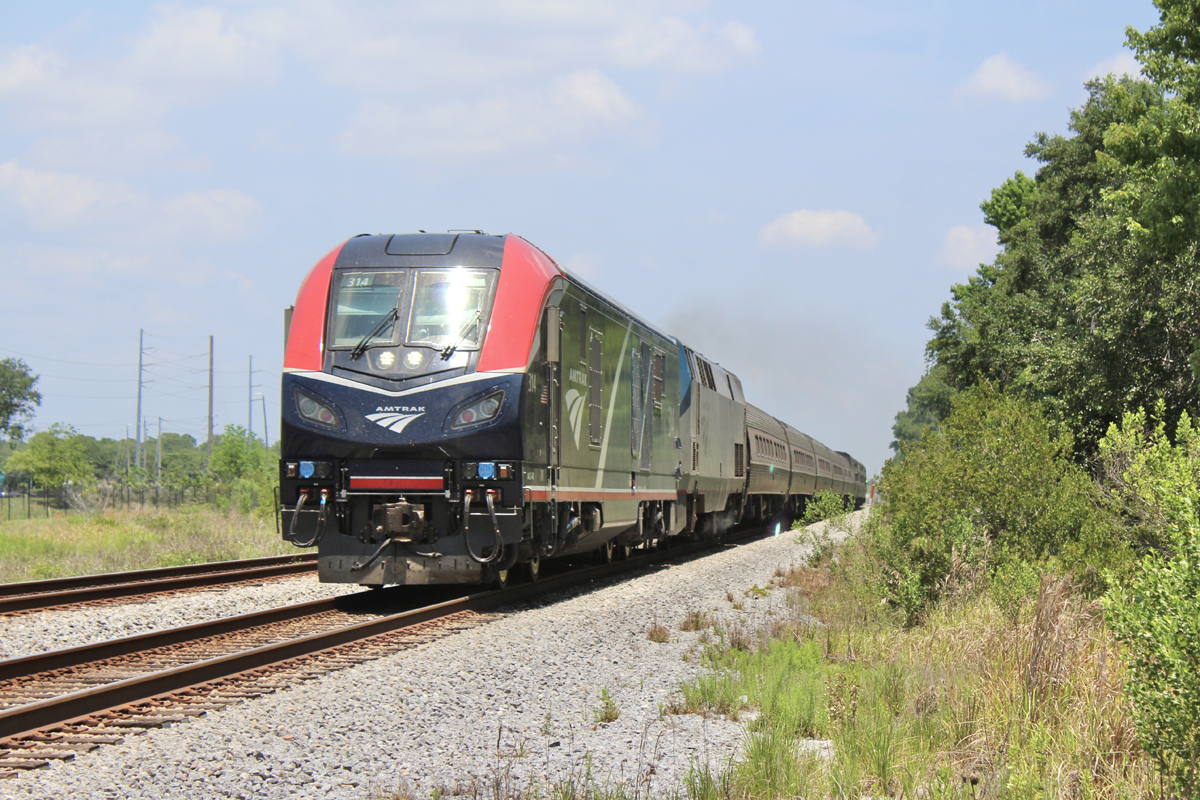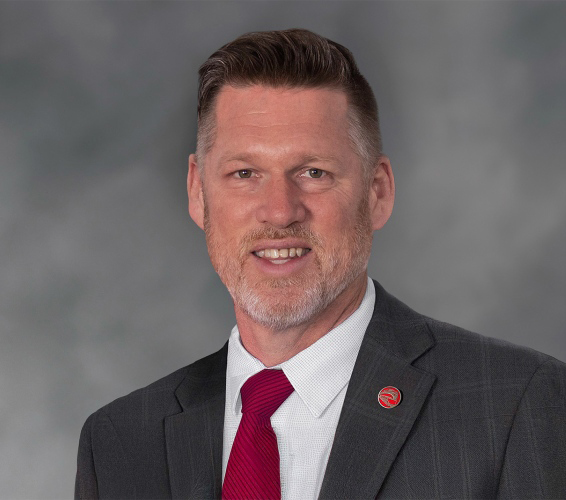
CHICAGO –—Climate change provides an opportunity for railroads, even as more frequent extreme weather events take a toll on railroad operations and infrastructure and require investments in new locomotive technology, executives told a shipper conference last week.
The increased emphasis on sustainability is a tremendous opportunity for rail carriers, BNSF CEO Katie Farmer told the North American Rail Shippers conference. “We’re really starting to see customers incorporate that into their buying decisions … it is no longer a trend but rather a business imperative,” she says.
Major rail shippers are pledging to become carbon neutral over the next two or three decades, so rail officials believe there’s a potential for a shift of some of traffic from truck to rail due to railroads’ far lower carbon footprint. Railroads carry 40% of the ton-miles in the U.S. but produce only 2% of the transportation sector’s greenhouse gas emissions.
“This is the biggest opportunity for the rail industry in the next 20 years,” says Michael Miller, president of Genesee & Wyoming’s operations in North America.
But railroads won’t be able to take advantage of their fuel efficiency edge over trucking unless the industry can improve customer service in five key ways, Miller says.
“We have to be collaborative. We have to be transparent. We have to provide visibility. We have to be resilient. We have to be adaptable,” he says. “If we can’t do those things for our customers, they’re not going to entrust their business to us long term and we’re not going to be able to grow.”
The Class I railroads have all set science-based targets for significant reductions in their greenhouse gas emissions by the end of the decade. “Those would be really tough [to reach] if your carloads grow by 40 or 50%,” Miller says. “But hopefully that’s where we are.”
Surface Transportation Board Chairman Martin J. Oberman says railroads will play an important role in reducing the transportation sector’s greenhouse gas emissions.
Oberman scolded railroads for losing market share to trucks over the past two decades and encouraged the industry to focus on growth. “I hope that the railroads and shippers will work together creatively to figure out how best to move more freight on the railroads and less freight on highways,” he says.
Building a more resilient railroad

Scientists say climate change makes extreme weather events more frequent, from droughts and wildfires to flash flooding and deep cold snaps.
UP’s Dry Canyon Bridge, on its I-5 Corridor in Northern California, was severely damaged by the Lava Fire in late June and was out of commission for just over a month while crews rebuilt the 1,440-foot span. Fritz visited the site last month after the bridge had been reopened and crews were in what he called “mop-up mode.”
“It’s amazing how that team speaks about the railroad. It’s their child,” Fritz says. “It hurts them personally when they lose it.”
Fritz says he saw the same thing in the Feather River Canyon, where the Dixie Fire put UP’s route out of service despite railroaders’ best efforts to protect the line.
Over the past five years UP has taken several steps to harden the railroad and make it better able to withstand extreme weather, Fritz says. Among them: Raising flood-prone sections of roadbed by three or four feet, enlarging culverts and keeping them clear of debris, conducting hydrologic studies to determine what sections of the railroad may be more at risk in coming years, and improving localized weather forecasting so severe events can be identified sooner.
One area of focus, Fritz says, is trying to better understand flash flooding risk in the desert Southwest, where a heavy thunderstorm miles from UP’s tracks could send a deluge toward the railroad.
“Sometimes we miss it. We did miss one of those on our Caliente Sub about a month and a half ago,” Fritz says. “We had a couple of locomotives put on their side due to a flash flood that came down a wash that, in the memories of the railroad, had never been filled with water. But rain happened in the mountains about 20 miles away, and we were unaware of it. And that’s a learning process for us.”
That incident, near Lund, Utah, saw three injured crewmen stranded on an overturned locomotive for hours before rescuers could reach them [see “Flooding triggers derailment …,” Trains News Wire, July 17, 2021].
Lower-emission locomotives

Battery-electric locomotives will play a major role in reducing BNSF’s greenhouse gas emissions 30% by the end of the decade, Farmer says.
BNSF tested a prototype Wabtec battery-electric locomotive in California earlier this year. The FLXdrive locomotive improved fuel efficiency of the traditional diesel-electric locomotives it was paired with by 11% [see “Wabtec, BNSF conclude initial tests …,” News Wire, April 30, 2021]. Wabtec is now developing a FLXdrive with significantly more battery power.
“We’re going to continue to work on the battery technology, to be able to have greater capacity. But I think there’s opportunities both in the yard as well as revenue line-haul service,” Farmer says.
BNSF is not considering main line electrification, Farmer said in an interview. Although the technology is proven, it also has been proven to be prohibitively expensive, she explains, and partial electrification would introduce operational complexities.
UP also sees battery-electric locomotives as key to reducing its greenhouse gas emissions 26% by 2030, Fritz says.
The railroad has ordered a battery-electric switcher for use in a California yard as part of a pilot program. “What we really look forward to is setting up a couple of yards where we electrify entirely, and experiment,” Fritz says.
UP is likely to shift to battery-electric locomotives in yards and local service first, Fritz says, then in line- haul service when feasible.
Union Pacific also will boost the biodiesel fuel blend in its EMD locomotives to 20% from the current 5%, Fritz notes.














I’m sick and tired of this ‘Climate Change’ crap. There is no such thing. The affects are here? Seriously? The underlying theme here is to destroy America, destroy our economy and gain control over every aspect of our lives…right down to your thermostat and what you can and cannot use to cook with, heat your home, etc. Wake up. The incredible hubris to think that humans can control the climate/weather is beyond ridiculous … we can’t even predict tomorrows weather with any level of accuracy.
JF T.
Yes look how people with doctorates, etc are doing on Covid.
Case in point Dr. Flip Flop Fauci
How about getting the freight off of the highways and onto the railroads? I recently took a trip through Iowa on I-80, the trucks are lined up end to end as far as you can see all the way across Iowa. Seems like we should get some of this freight onto the rails.
It’s good to know we have so many geology and climate experts on this thread. I mean, wow. You guys seem to know more than individuals with doctorates and post-docs on the subject.
I think Jim Boyd said it best: History will show that global warming (climate change) was the biggest, most expensive hoax ever foisted on mankind.
Do not forget, that economic laws are inelastic. Violate them and you will invite consequences. These changes must make economic sense otherwise we will not be able to sustain them. Oil is a blessing to man, not a curse. Our planet is indeed hot but from the inside. The earth’s crust makes up only 1% of the volume of the globe, far smaller than the molten inner parts. The real problem: if wholesale changes are made to our economy and no changes to climate warming result, what then?
A level grade is best for railroads, which is perhaps why there are so many “Flat Earthers” in the comments… lol… 🙂
From my research the freight railroads seem to be betting on hydrogen fuel cells (working with a large battery pack to create a hybrid powertrain) with Canadian Pacific and Caltrans in California taking the lead. Interestingly Caltrains for its state supported Amtrak services is looking at dual-mode (or tri-mode: fuel cell, battery, pantograph) locomotives as pentagraphs that could equip hydrogen locomotives to recharge the batteries at stations and maintenance depots, would allow them to run of overhead catenary were available. Like the freight railroads, Caltrans is looking at rebuilds of existing diesel-electric locomotives.
In the Northeast corridor, much of the electricity used by Amtrak and the commuter operators comes from a hydroelectric source, that is, a renewable source. Amtrak should mention this fact, as well as the use of regenerative braking on its electric motive power, in marketing this service to the more environmentally conscious young crowd.
Daryl Achenbach is completely correct.
First off, we have a whole lot of environmental stresses. It’s an extremely simple algorithm. Multiply the number of people on the planet times the material lifetsyle they either do now have or want to have. That’s the stress on the environment. Switching from gas cars to electric cars doesn’t change that algorithm one tiny bit, not in the least.
Electric this, electric that – California mandates all-electric kitchens and heating and cars — I call absolute {word deleted}. Doesn’t anybody realize that every single kwh, 100.0000%, kwh generated becomes heat?
Charles you really should check out the free on-line classes that the University of Wisconsin Madison has on weather and climate change. I was on the fence until seeing the facts presented by scientists. It would probably be nice if Trains did an in-depth article on the subject with those scientists from Madison.
I trust U_W Madison as far as I could throw Dane County.
WOW nasa.gov Another government agency that we have to believe that everything they say is true.
We cut down forests to build more subdivisions and apartment. Pave over acres and acres of land for warehouses and streets, etc so the water can’t soak into the soil. Everyone has a clothes dryer and when they run, out comes warm, moist air into the atmosphere. Man is supposed to change all this but many call it development and progress. Railroads are doing a better job on emissions than the auto industry is. Coal isn’t used as much in the US as in previous years but US coal goes overseas where they don’t care a lick about pollution controls or climate change.
Would you believe it if you heard it from NASA?
climate.nasa.gov
I’ll trust a bi-partisian government agency made up up scientists like NASA before I’d trust any climate change deniers who have no clue what their taking about. Thanks Daniel and Mike.
But diesel locomotives don’t pollute munch of the air as road vehicles do
Climate change is real. If there wasn’t any climate change the earth would still be a mass of molten rock. The question is what has caused the recent severe storms and events. Now everyone admits that the wildfires are caused by humans 80% of the time. No one disputes that but it doesn’t sound like climate change to me. I think that the current climate events are only caused by man maybe in the range of 2% to 3%. The remainder is all natural and nothing we as humans can do is going to eliminate climate change. In the millions+ year history of the earth climate has continually changed and it will continue with or without us.
broken record climate changes everyday where I live, we are not toast, your last paragraph gives us hope
Same here. We got to do something about this. I can’t stand these rainy days. Perhaps if folks don’t like hurricanes, they should move away from their paths
That’s an absurd statement. First of all climate change is real, it’s not some made up thing in scare quotes.
Limiting the effects of climate change is not optional. Doing nothing and continuing to burn fossil fuels (particularly coal) is literally cooking the entire planet. Just ask anyone who’s lived through recent epic droughts in the west (along with fires) and more frequent and more vicious hurricanes (including me, who just lived through Ida).
We’ve spent the last 40 years pretending that climate change wasn’t real and not taking it seriously. Well, now the affects are here and we’re still dithering and people like you are still pretending that it’s some made up nonsense. It’s not.
I’m old enough that by the time things get REALLY bad I’ll be dead, but that’s not tru for the generations after me. They’ll have to pick up the pieces that WE left them because we were stupid and pretended that nothing could change.
Who wins in the “fight” against “climate change”? Nobody. We will all lose. Our economy will be in a nosedive and environmental stresses will be, if anything, worse than now, not lesser than now.